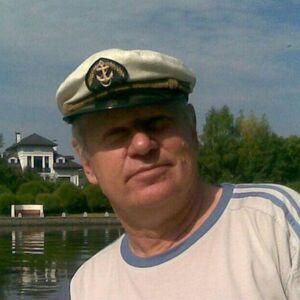Беликова Е.К., Саратовская Л.Б. - The United Kingdom and United States of America in Past and Present (1268141), страница 34
Текст из файла (страница 34)
Nouns are used as verbs: to park, topackage, to program, to vacation. Adjectives can become nouns: briefs,comics, etc.Globalization of American English. The American vocabulary duringthe 19th and especially 20th and 21st centuries began to be exported abroaddue to its economic, political and technological prominence in the world.American movies, radio, television, pop culture have certainly hastenedthe process.In recent years Americanisms have been introduced into internationalusage. The ubiquitous OK seems to occur more frequently nowadays inEngland than in the land of its origin and may be found in quite formalsituations, such as on legal documents and computers to indicate thecorrectness of details. Americanisms have slipped into British Englishand father in the most unobtrusive way, so that their American origin ishardly regarded at all. Know-how, a cafeteria ,a supermarket, a filmstar,coca/pepsi-cola,a skyscraper, chewing gum ,a credit card, a skyscraper,a baby sitter, electrocute, etc.
firmly established not only in StandardBritish English. but in many other countries as well.. Most words andusages are frequently borrowed from American English quiteunconsciously. Even when they are consciously borrowed, the fact thatthey are of the transatlantic origin is soon forgotten.American dictionaries give a fascinating glimpse of the vast changes inAmerican and, inevitably, global English by the electronic age. Somefifty years ago no one walked on the Moon, bought a sun blocker orrunning shoes. VCRs were unknown.
Heavy metal, punk rock music,post-modernism, yuppies and soft contact lenses didn’t exist. Hundreds ofnew business buzz-words are used, reflecting the birth of global marketsand the take-over boom. Americans invented a lot of new wordsconnected with new technology, computers and internet: state-of-the-art134(very latest technology), artificial intelligence, a notebook, a laptopcomputer, download, upload, online, offline, website, to hack, software,know-how, the dotcom economy, screensaver, trackpad, thumbnail,footprint, gridlocked, cyber pet, a techno-wizard, a cybercafé and manyothers of computer-related terms are increasingly invading the daily life.A lot of politically correct terminology also appeared: people of color,coloreds, organized crime (mafia), Hispanic culture, stay-at-home mom(housewife).
Among such words there are euphemistic references: seniorcitizens or older adults (pensioners), the loved one ( death and funeralreferences), to rehire employees ( to fire them), powder room (ladies’toilet), etc.Vocabulary of equality: Fireman-firefighter; policeman-police(security) officer; mailman- mail carrier; salesman-sales person;manmade-artificial; synthetic-manufactured; stewardess-flight attendant,chairman-chairperson; chair-presiding officer.A lot of abbreviations and acronyms appeared, especially often used inmedia and ads ( advertisements): NATO (North Atlantic TreatyOrganization) , UNESCO (United Nations Educational, Scientific andCultural Organization), IIMF (International Monetary Fund), CIA(Central Intelligence Agency), Call (Computer Assisted LanguageLearning), ZIP code (for Zone Improvement Plan), SALT (StrategicArms Limitation Treaty),INF (Intermediate Range Nuclear Force),AAAAA (American Association for the Abolition of Abbreviations andAcronyms),all mod cons (all modern conveniences), ch.(central heating),d/g (double garage), etc.The spreading of American English is also supported by the internationalexamination TOEFL (Test of English as a Foreign Language) which allforeign students and immigrants are obliged to pass to study or live in theUSA.1.
Answer the questions: 1. What kind of words did the English settlersborrow from other languages? 2. What importance did the founders of Americannation attach to the power of the language? 3. When was the phrase “theAmerican language” used for the first time? 4. Who was the first to think ofreforming the chaotic English spelling? .5.What measures were suggested topromote American English? 6. What was the aim of this political action? 7.
Whyis Webster called the champion of American English? 8. What did Webster do todevelop American English?2. Can you explain what American and British people mean when they say: abill, a purse, subway, pants, vest, and wash up? Can you give the British135equivalents to the American words: gasoline, truck, sidewalk, line, vacation,trunk (of a car), hood (of a car), a cab, freeway, round trip, a railway car, anengineer(on train),an eraser, a closet, drapers, faucet, a yard, cookie, candy,garbage, intersection, a living room, a long-distance bus, blue-chip investments,call loan, stocks, an express man, to fix a meeting, government bonds?3.
Discussion problems: 1. Describe the differences between British andAmerican English in grammar, vocabulary and pronunciation. Give examples. 2.List the major dialects of American English.3.Why can American English becalled as “a linguistic melting pot”? 4. What are the reasons of the influence ofAmerican English on its mother tongue and many other languages o the world?CHAPTER VI.AMERICAN SCIENCEPart I. The History of American ScienceRead the following words and word combinations:To monitor- управлять to encourage – поощрять, поддерживатьEstablishments - организацииto lag behind – отставатьHands-on- передавать Challenges of war- требования войныTo give a boost - дать ускорение scientific undertakings- научныепредприятияTo destine- предназначать to entail (юр.)-ограничивать права,To diffuse- распространять to pursue -преследоватьOutreach-переходить предел to follow the suit- следовать примеруUnder the auspices [ ‘o:spisэs]- под покровительствомA chunk - большой кусокto regain momentum- сохранить темпTo pave the way- пролагать путь; to be second to none-быть лучшимSimilar to education, the USA does not exercise a centralized scienceand technology policy.
At the same time it is impossible to say that thereis absolutely no central monitoring of science and technology here. TheUS scientific establishments have always been serious responses tosociety’s practical needs. Since America was rich in natural resources butrelatively poor in facilities and personnel for education and research, anindependent establishment with close ties to the Federal Government wasneeded to master resources for the guidance of the nation’s scientificcommunity. When in the late 18th and the early 19th centuries new ideasand technology demanded new approaches and teamwork, the AmericanAssociation for the Advancement of Science was founded (1848).In 1863 the National Academy of Sciences (NAS) was organized.The creation of the Academy originated from the immediate practical136problems of the time of the Civil War.
It also reflected the fact that at thattime the US was beginning to emerge as a technological country. 0. TheAcademy created departments and bureaus related to scientific andtechnological problems (the Geological Survey, the National Bureau ofStandards, the US Weather Bureau, the Patent Office, etc.). The need forhands-on scientific instruction led to the organization of scientific schoolsand centers of learning and research (at Yale and Harvard Universities),and the Massachusetts Institute of Technology (M.I.T.1861).American political leaders’ welcomed the scientists from othercountries.
Among them: the inventor of the telephone Alexander GrahamBell from Scotland, a developer of alternating-current electrical systemsCharles Steinmetz from Germany, the creator of television cameraVladimir Zworykin.The Serb Nikola Tesla went to the U.S. in 1884,where he invented brushless electrical motor based on rotating magneticfields. The challenges of World War I had a far-reaching effect on thedevelopment of science in the USA. During the war and after itAmerican universities produced the great number of well-trainedscientists and engineers.
















